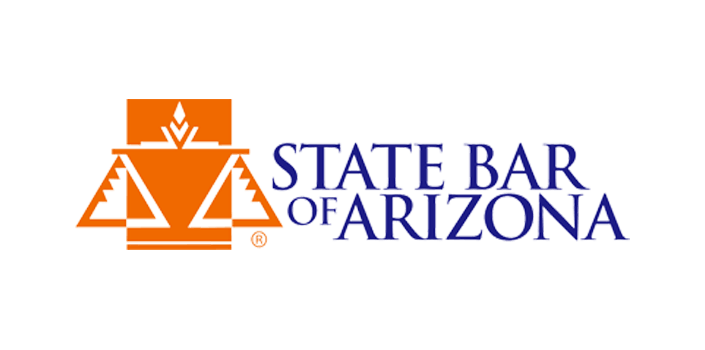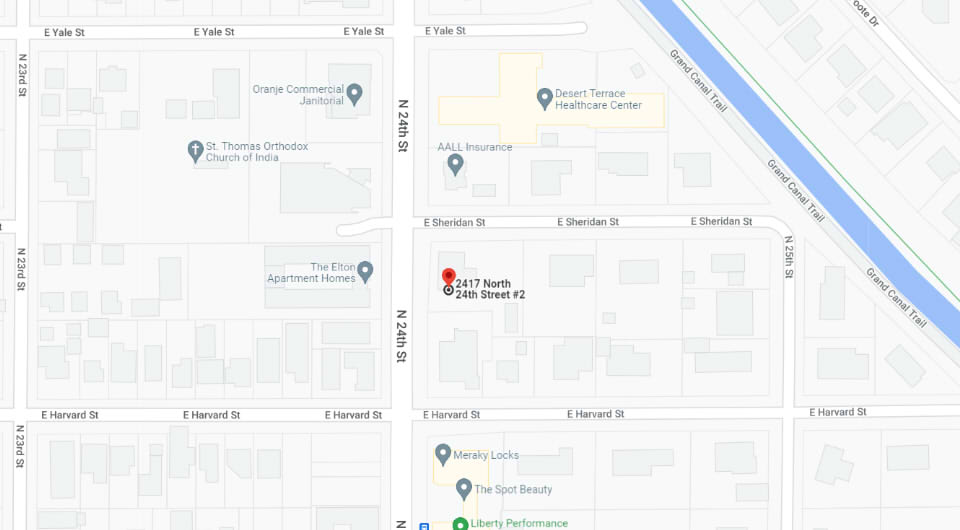Meningitis, a potentially life-threatening inflammation of the membranes surrounding the brain and spinal cord, demands swift and accurate diagnosis to prevent serious health complications. However, errors can occur in medical practice, leading to failure to diagnose meningitis. Failure to diagnose meningitis places patients' lives at risk and raises questions about medical accountability and patient safety.
If you or a loved one have been affected by failure to diagnose meningitis, it's important to consult with a qualified attorney who specializes in personal injury or medical malpractice cases. At Phoenix Personal Injury Attorney Law Firm, we can help you evaluate the circumstances surrounding your case, and determine if you have a valid legal claim.
Understanding Medical Malpractice and Meningitis
Medical malpractice occurs when a healthcare provider's actions deviate from the expected standard of care, and this deviation leads to harm or injury to the patient. This harm can be physical, emotional, or financial. The expected standard of care refers to the level of care that a reasonable and competent healthcare provider in the same field would provide under similar circumstances.
Meningitis is a medical condition characterized by the inflammation of the meninges, which are the protective membranes surrounding the brain and spinal cord. The inflammation can be caused by bacteria, viruses, fungi, or other pathogens. The hallmark symptoms of meningitis include severe headaches, high fever, neck stiffness, sensitivity to light, and altered mental status. Due to its rapid onset and potential for serious complications, swift diagnosis and appropriate treatment are crucial.
Signs and Symptoms of Meningitis
Below are some of the common symptoms of meningitis:
The Elusive Mimicry
- Fever and Headache — High fever and severe headaches are common in many illnesses, and they often serve as the initial indicators of meningitis as well.
- Neck Stiffness — A stiff neck, a classic hallmark of meningitis, is also present in other ailments like tension headaches or muscle strains.
- Altered Mental State — The confusion, irritability, and altered consciousness that can accompany meningitis may be mistakenly attributed to fatigue, stress, or other psychological factors.
The Misinterpreted Signs
- Vomiting and Nausea — These symptoms are not exclusive to meningitis and can occur in a variety of conditions, leading to potential misdirection.
- Photophobia — Sensitivity to light, while a potential indicator of meningitis, can also be linked to ocular conditions or other neurological issues.
- Rash Misconceptions — In bacterial meningitis cases, a rash that doesn't fade under pressure may be misinterpreted as a benign skin reaction, causing a critical delay in diagnosis.
Age-Dependent Complexity
- Children and Infants — Meningitis symptoms can be particularly subtle in this age group, with fever, irritability, poor feeding, and lethargy potentially resembling common childhood ailments.
Variability in Viral and Bacterial Meningitis
- Viral Meningitis — Symptoms of viral meningitis can often be less severe, leading to the potential for dismissal or failure to diagnose as a milder viral illness.
- Bacterial Meningitis — In bacterial cases, the rapid progression of symptoms can be mistaken for other conditions, leading to delays in appropriate treatment.
The Role of Medical Negligence
In the context of meningitis, medical negligence can manifest in various forms:
- Misdiagnosis or Delayed Diagnosis — Meningitis symptoms can mimic other common illnesses, leading to misdiagnosis or delayed diagnosis. Failure to recognize the signs promptly can result in delayed treatment and worsened outcomes.
- Lack of Thorough Examination — In some cases, medical professionals may overlook crucial symptoms or fail to conduct a comprehensive examination, leading to an inaccurate assessment of the patient's condition.
- Misinterpretation of Symptoms — Meningitis symptoms can be subtle or atypical, especially in certain patient populations. Healthcare providers who misinterpret or downplay these symptoms can inadvertently contribute to the failure to diagnose meningitis.
- Inadequate Testing — Accurate diagnosis of meningitis often requires specific tests, such as cerebrospinal fluid analysis. Negligence can occur when healthcare providers fail to order appropriate tests or misinterpret their results.
Consequences of Failure to Diagnose Meningitis
Meningitis is a time-sensitive condition where every moment counts. Failure to promptly diagnose and treat meningitis can lead to devastating consequences:
Delayed Treatment and Rapid Escalation
Meningitis is characterized by its rapid onset and swift progression. Delayed or incorrect diagnosis can allow the inflammation to spread unchecked, leading to a worsening of symptoms and an increased risk of severe complications. These may include seizures, brain damage, hearing loss, and even death.
Physical and Neurological Damage
Meningitis can cause significant physical and neurological damage, especially when left untreated. The inflammation can lead to brain swelling, which may result in cognitive deficits, motor impairments, and long-term neurological issues.
Long-Term Health Complications
Failure to diagnose meningitis can leave a lasting imprint on a patient's health. Chronic headaches, memory problems, and fatigue are potential long-term consequences that affect the quality of life.
Emotional and Psychological Impact
The toll of failure to diagnose meningitis extends beyond physical realms. Patients who have experienced failure to diagnose meningitis may endure heightened anxiety, depression, and emotional distress due to the uncertainty of their condition and the potential for lasting damage.
The Legal Framework in Arizona
In Arizona, individuals who have suffered due to medical negligence, including failure to diagnose meningitis or mistreated meningitis cases, can pursue legal recourse through medical malpractice claims. To succeed in such claims, certain elements need to be established:
- Duty of Care — The healthcare provider had a duty to provide reasonable and appropriate care to the patient.
- Breach of Duty — The provider's actions or lack thereof breached the established standard of care.
- Causation — The breach of duty directly led to the patient's harm, in this case, the exacerbation of meningitis-related complications.
- Damages — The patient suffered significant damages, whether physical, emotional, or financial, due to the healthcare provider's negligence.
Steps to Pursue Legal Recourse
Here are steps to guide you through the legal process of filing a Lawsuit:
Seek Legal Counsel
The journey begins by consulting an experienced medical malpractice attorney who specializes in meningitis cases. An attorney will evaluate the circumstances surrounding the alleged negligence, review medical records, and provide an initial assessment of the viability of your case.
Case Evaluation
Working closely with medical experts, your attorney will meticulously evaluate the medical records and relevant evidence to determine whether negligence played a role in the failure to diagnose meningitis cases. This stage involves understanding the standard of care that should have been provided and whether it was breached.
Gathering Evidence
Compiling a comprehensive body of evidence is crucial in building a strong case. Your attorney will collect medical records, diagnostic tests, expert opinions, witness testimonies, and other documentation that supports your claim of negligence.
Filing a Lawsuit
Once a solid case is established, your attorney will file a medical malpractice lawsuit on your behalf. This legal document outlines the allegations of negligence, the damages suffered, and the compensation being sought.
Discovery Phase
During the discovery phase, both parties exchange information and evidence related to the case. This can include depositions, interrogatories, requests for documents, and expert witness reports. This phase aims to uncover crucial details and evidence that will shape the trajectory of the lawsuit.
Negotiation and Settlement
In many cases, the parties involved engage in negotiation to settle before going to trial. Your attorney will represent your interests during these negotiations, working to secure a fair and just compensation package.
Trial Preparation
Your attorney will prepare for trial if a settlement cannot be reached. This involves strategizing, compiling evidence, preparing witnesses, and crafting compelling arguments to present in court.
Trial and Verdict
During the trial, both sides present their case before a judge or jury. Expert witnesses may be called to testify, and evidence is presented to support the allegations of negligence. After the trial, a verdict will be reached, determining whether negligence occurred and, if so, the compensation to be awarded.
Post-Trial Options
Depending on the outcome, there are post-trial options available. If you win the case, you will be awarded the determined compensation. If you lose, you can discuss the possibility of an appeal with your attorney.
Receiving Compensation
If successful, the compensation awarded may cover medical expenses, lost wages, pain and suffering, emotional distress, and other related damages.
Statute of Limitations
The statute of limitations serves several vital purposes:
- Preservation of Evidence — Over time, evidence can degrade or be lost, making it harder to establish the facts of a case accurately.
- Witness Memory — Witnesses' memories fade with time, making it more challenging to present accurate testimony.
- Legal Order — Imposing a time limit ensures that cases are resolved promptly, preventing extended periods of uncertainty.
- Judicial Efficiency — Timely cases contribute to the efficiency of the court system, allowing for a more organized and manageable legal process.
In Arizona, the statute of limitations on medical malpractice cases, including meningitis cases due to negligence, is generally two years. This means that individuals who believe they have been affected by medical negligence have a two-year window from the date of the alleged negligence to file a lawsuit. However, the following scenarios may be exempted:
- Discovery Rule — In some cases, the clock starts ticking not from the date of the alleged negligence but from the date when the injury or negligence was discovered or should have been discovered. This can be particularly relevant in cases where the harm isn't immediately evident.
- Minor Exceptions — For cases involving minors, the statute of limitations might be extended until the minor reaches a certain age, usually 18 years old.
- Extension for Foreign Objects — If an object is left inside a patient's body during a medical procedure, a one-year extension beyond the two-year limit might apply.
Possible Compensation
Compensation in medical negligence cases is designed to address various types of losses suffered by the victim. In meningitis cases due to negligence, several forms of compensation may be pursued:
Medical Expenses
Compensation may cover medical costs incurred as a direct result of negligence. This includes expenses related to diagnosis, treatment, hospitalization, medications, rehabilitation, and any necessary follow-up care.
Lost Wages
If the victim was unable to work due to the negligence and its resulting complications, compensation can account for lost wages, including both past and future earnings.
Pain and Suffering
Pain and suffering compensation acknowledges the physical and emotional distress endured by the victim due to the negligence. This includes not only the immediate suffering but also the long-term impact on the victim's quality of life.
Emotional Distress
Negligence in meningitis cases can lead to severe emotional trauma for the victim and their loved ones. Compensation may address the psychological impact, anxiety, depression, and emotional turmoil resulting from the negligence.
Loss of Consortium
If the negligence has affected the victim's relationship with their spouse or family, compensation might be sought to address the loss of companionship, intimacy, and support.
Punitive Damages
In cases where the negligence is particularly egregious, punitive damages may be sought. These damages are intended to punish the negligent party and deter similar behavior in the future.
Factors Influencing Compensation
Several factors can influence the amount of compensation awarded in meningitis cases due to negligence:
- Severity of Harm — The extent of harm suffered by the victim due to negligence is a significant factor in determining compensation.
- Economic Impact — Compensation may account for both immediate and long-term financial losses incurred as a result of negligence.
- Emotional Toll — The emotional distress, pain, and suffering endured by the victim can contribute to the compensation amount.
- Negligence Severity — The degree of negligence, including whether it was intentional or a result of gross negligence, can impact
The Role of Expert Testimonies
Medical malpractice cases often involve intricate medical concepts that an individual may struggle to understand fully. This is where expert witnesses come into play. These professionals in their respective medical fields possess the knowledge and experience to explain complex medical issues to judges and juries in a clear and comprehensible manner. Their role is multifaceted:
Educational Bridge
Expert witnesses bridge the gap between medical intricacies and legal proceedings, ensuring that all parties involved comprehend the medical details crucial to the case.
Establishing the Standard of Care
Experts outline the expected standard of care that healthcare providers should adhere to in similar situations. They help the court understand whether the defendant's actions deviated from this standard.
Causation
Expert testimonies connect the dots between the alleged negligence and the harm suffered by the patient, establishing a cause-and-effect relationship that is central to the case.
Quantifying Damages
In cases of harm or injury, experts provide insights into the extent of the damages suffered by the victim, helping determine appropriate compensation.
The Role of Medical Evidence
Medical evidence is the factual information and documentation that supports the claims and assertions made in a medical malpractice case. It serves as the tangible foundation upon which legal arguments are constructed:
Medical Records
Comprehensive medical records, including test results, treatment plans, and prescriptions, provide a chronological account of the patient's medical journey.
Diagnostic Tests
Imaging studies, laboratory tests, and other diagnostic procedures can serve as objective evidence to corroborate the claims of negligence.
Treatment Documentation
Detailed documentation of treatment procedures, medications administered, and medical interventions provide insights into the care provided to the patient.
Expert Analysis
Medical evidence often includes reports and analyses from expert witnesses who have reviewed the case and provided their professional opinion on the matter.
Chain of Custody
In cases involving physical evidence, maintaining an unbroken chain of custody ensures that evidence is handled properly and remains untainted.
The Roles of a Personal Injury Attorney
When facing medical malpractice, it is essential to have a personal injury attorney by your side. They can offer the following benefits:
Legal Counsel and Advocacy
At the core of a personal injury attorney's role is providing legal counsel and advocacy for clients who have suffered due to medical negligence. They act as unwavering advocates, ensuring that their clients' rights are protected, and they receive the compensation and justice they deserve.
Case Evaluation
Personal injury attorneys assess the details of the case to determine its viability. They meticulously review medical records, evidence, and expert opinions to gauge the strength of the claim and advise clients on the best course of action.
Expert Collaboration
Navigating medical malpractice cases requires a deep understanding of medical procedures and terminology. Personal injury attorneys collaborate with medical experts to decipher complex medical concepts, review records, and provide expert testimonies that help establish the standard of care that should have been followed.
Evidence Gathering
A crucial role of personal injury attorneys is gathering evidence to build a robust case. They collect medical records, documents, images, witness statements, and any other relevant information that strengthens their clients' claims of medical negligence.
Crafting Legal Arguments
Personal injury attorneys develop compelling legal arguments that highlight negligence and its consequences. They weave together medical evidence, expert opinions, and legal principles to create a narrative that resonates with judges and juries.
Negotiation Skills
In many cases, personal injury attorneys engage in negotiations with opposing parties or their insurance representatives to reach a fair settlement. Their negotiation skills come into play as they advocate for just compensation for their clients' suffering.
Litigation and Trial Representation
When settlements cannot be reached, personal injury attorneys are prepared to represent their clients in court. They guide them through the litigation process, presenting their case, cross-examining witnesses, and providing strong advocacy in the courtroom.
Find a Medical Malpractice Injury Attorney Near Me
Failure to accurately diagnose meningitis can lead to prolonged suffering, irreversible health damage, and even tragic loss of life. If you or a loved one have experienced the devastating effects of a failure to diagnose meningitis, the Phoenix Personal Injury Attorney Law Firm is here to provide the support and legal guidance you may need. We are committed to fighting for your rights and seeking the justice you deserve. Call us today at 602-641-9589.










